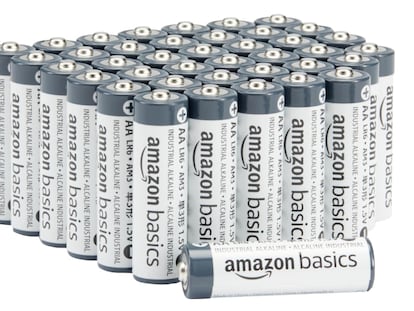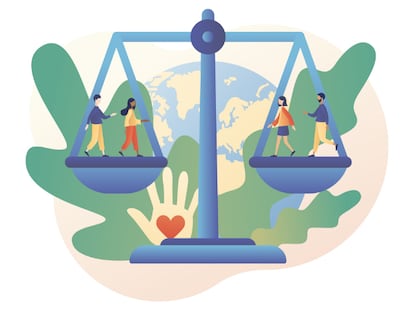Cable sobre las relaciones entre EE UU y el Vaticano
La 'número dos' de la Embajada en la Santa Sede afirma que el Vaticano "necesita lecciones en relaciones públicas"
| ID: | 189059 |
| Date: | 2009-01-27 16:52:00 |
| Origin: | 09VATICAN11 |
| Source: | Embassy Vatican |
| Classification: | SECRET |
| Dunno: | 09ROME58 09VATICAN10 09VATICAN9 |
| Destination: | VZCZCXRO6175 PP RUEHFL RUEHKW RUEHLA RUEHNP DE RUEHROV #0011/01 0271652 ZNY SSSSS ZZH P 271652Z JAN 09 FM AMEMBASSY VATICAN TO RUEHC/SECSTATE WASHDC PRIORITY 1029 INFO RUEHZL/EUROPEAN POLITICAL COLLECTIVE RUEHTV/AMEMBASSY TEL AVIV PRIORITY 0076 RUEHJM/AMCONSUL JERUSALEM PRIORITY 0064 RUEHAM/AMEMBASSY AMMAN PRIORITY 0004 RUEHGV/USMISSION GENEVA PRIORITY 0022 RUCNDT/USMISSION USUN NEW YORK PRIORITY 0030 RUEHROV/AMEMBASSY VATICAN 1065 |
S E C R E T SECTION 01 OF 02 VATICAN 000011 SIPDIS E.O. 12958: DECL: 1/27/2029 TAGS: PGOV, PREL, KIRF, PHUM, JO, IS, VT SUBJECT: CHURCH UNITY ONE, CATHOLIC-JEWISH RELATIONS ZERO REF: A. A) VATICAN 10 B. B) ROME 58 C. C) VATICAN 09 VATICAN 00000011 001.2 OF 002 CLASSIFIED BY: Rafael P. Foley, Acting DCM. REASON: 1.4 (b), (d) 1. (S) Summary: The Pope's decision to reinstate communion with a breakaway Catholic group that included a Holocaust-denying cleric (ref A) proved that his highest concern is the long-term religious well-being of the Church, not the Holy See's relations with other sovereign states. This religion-first attitude is also informing the Holy See's planning for the Pope's probable trip to Israel and Jordan next May (ref B) and its handling of a controversy over whether WWII Pope Pius XII should be declared a saint. Most Holy See insiders believe that this is the right approach for a 2,000 year-old institution which considers its greatest historical failure "the scandal of the Christian disunity." This said, Pope Benedict XVI -- himself a German who lived through WWII -- has publicly deplored anti-Semitism and emphasized improved relations with the Jews. The Holy See may find, however, that its politically tone-deaf handling of this decision may cool the Pope's reception in Israel this May, if the trip is confirmed). End Summary Broad Context, Long History for Vatican-Jewish Dialogue --------------------------------------------- ---------- 2. (C) In a lengthy discussion with CDA and A/DCM on January 23, the Secretary of the Holy See's Commission for Relations with the Jews, Father Norbert Hofmann, described Vatican-Jewish dialogue efforts. He noted that an odd organizational decision demonstrates just how important Catholic-Jewish relations are to the Vatican: the Commission for Relations with Jews comes under the Pontifical Council for the Promotion of Christian Unity -- not/not the Pontifical Council on Inter-Religious Dialogue (which deals with relations with Muslims, Hindus, Buddhists and Animists). According to Hofmann, Jewish leaders appreciate this arrangement because it is to their advantage to underline the special relationship that bounds Christianity to Judaism. 3. (C) Both religions accord major importance to dialogue. Since the Second Vatican Council (1962-1965), the Catholic Church has pursued closer ties with Judaism, citing their shared texts and history. In recent years, and coinciding with the election of German Pope Benedict XVI (who lived through WWII as a child), the effort to strengthen these ties has been kicked into high gear. Jews, Hofmann said, think good relations with the Holy See help combat anti-Semitism and ensure that there will never be another Shoa. Denial of Outrage about Perceived Affronts ------------------------------------------ 4. (C) Hofmann opined that Pope Benedict XVI's reinstatement of the four Lefebvrist clerics excommunicated by Pope John Paul II (ref a) would not damage Vatican relations with the Jews over the long term. He anticipated that the public denial of the Holocaust by one of the four, Bishop Williamson, would be controversial and would attract criticism in the short term but then be set aside quickly. Other Church leaders seemed to agree that since the Pope's decision was religious, not political, it would be understood as such. The head of the French bishops' conference, for example, hailed the act as "a gesture of mercy and openness for strengthening Church unity." Other Church leaders disassociated themselves from Bishop Williamson's Holocaust denials, then adding words of welcome for the reinstatement of the four Lefebvrists. It fell mostly to Cardinal Kasper, who runs the Catholic-Jewish dialogue, to condemn the rehabilitated bishop's remarks as "stupid" and "unacceptable," and having "nothing to do with the Catholic Church." As is typical, the Pope stayed above the fray and did not comment. 5. (S) Indeed, most Church leaders seem to think the damage from this matter will not last or harm the Pope's planned visit to Israel. Father Hofmann specifically said the controversy would join other similar matters as "non-issues in the good state of Jewish-Catholic relations." Nevertheless, other controversies continue to rankle with Jews and others. Among them is an old Latin Catholic Mass prayer calling for conversion of Jews. Even more controversial in recent months has been the proposal to canonize (make a saint of) Pope Pius XII, the WWII-era Pope who some criticize for not having publicly denounced the Holocaust. Rabbi Cohen of Haifa (Israel), the first Rabbi ever invited to address a Synod of bishops, implicitly criticized the canonization proposal in his remarks to the bishops last fall. Church officials did not expect the criticism and were annoyed by it. Hofmann dismissed even those public remarks, though, saying the Rabbi had confided in him that he'd been pressured by other Jewish leaders to deliver the point. VATICAN 00000011 002.2 OF 002 Prospects for Pope's Trip to Israel and Jordan --------------------------------------------- - 6. (C) Meanwhile, the Pope's planned visit to Israel looms large in Vatican-Jewish relations. Consistent with what other Vatican officials have told us (ref b), Father Hofmann confirmed that the Pope's trip was not conditioned on resolving Church property taxation issues in the Israel-Holy See Fundamental Agreement. The real motivation for the trip is, again, religious: the eighty-one year-old Pope wants to make a pilgrimage to the Holy Land as Pontiff before his advanced age makes it too difficult. At the same time, the Holy See believes the Pope's trip to Israel, the West Bank and Jordan will advance awareness about the Holocaust and the need to combat anti-Semitism. A Papal visit will also publicly highlight the Vatican's acceptance of the State of Israel, with which the Holy See established relations in 1993. Hofmann implied that for these reasons, absent major negative developments, the trip would occur. 7. (S) In a separate conversation on January 23, the new Israeli Ambassador to the Holy See, Mordechai Lewy, took a somewhat more jaded view. While confirming that planning without pre-conditions is underway, expressing hope that the trip would happen, and acknowledging that it could advance Catholic-Jewish dialogue, Lewy would not speculate on its likelihood. Lewy did not see many prospects for a Papal visit helping to resolve the Israeli-Palestinian conflict. While Israel wants to keep on good terms with the Holy See to avoid problems, he said, Israeli leaders don't think that the Vatican can influence the Arabs. 8. (S) On the other hand, Lewy said, the Jordanians may have a pecuniary interest in the visit. Prince Ghazi, Lewy alleged, has financial stakes in the possible tourist development of the area around Jesus' baptismal site. A Papal visit to this area would be good for business. Since not all churches in that area would welcome such development, this has caused some conflict between authorities and local churches. 9. (C) The Israeli Ambassador did not think that the recent Gaza crisis would play a role in the Pope's final decision on whether to travel to the Holy Land. Lewy was disappointed with the Vatican's criticism of Israeli actions in Gaza, and raised his views with Monsignor Parolin, the Holy See's deputy foreign minister. Lewy urged Parolin to say something positive about Israel to balance these remarks. Specifically, he wanted the Holy See to state publicly that the religious freedom Christians enjoy in Israel is unparalleled in the Middle East, where Christian minorities are increasingly on the defensive against political Islam. Parolin, he said, committed to do so. (C) Comment: A Formidable Partner in Need of P.R. Lessons --------------------------------------------- ------------ 10. (S) Pope Benedict sometimes bewilders politicians and journalists by pursuing what he believes is in the best interest of the Church, such as reinstating the Lefebvrists or considering the canonization of Pius XII. (His predecessor, John Paul II, suffered from some of the same second-guessing.) Vatican outsiders lament decisions or policies that they perceive as being out-of-step with the new millennium, and call for the Church to be more modern and accommodating. What these observers fail to recognize is the consistency of the Holy See's decisions and behavior on key issues like the reunification of the Church or the dignity of all human beings - and the value of that consistency. Regardless of whether outsiders agree or disagree with the Holy See, it's hard to dispute its moral influence, geographic reach, and ability to grab headlines. These qualities can make the Vatican a formidable partner for the U.S. and other nations in the pursuit of common objectives. 11. (S) At the same time, there's no denying the fact that a little more attention to how the outside world views decisions taken inside the Church could help the Holy See protect its image and further its influence. Although Church leaders like Benedict are adopting new means of communication to get their message to a wider audience (ref C), they have not yet embraced fully the need -- and tools -- for 21st century public relations. The Holy See's spokesmen could have resoundingly denounced the Holocaust-denying views of Bishop Williamson at the same time the Pope welcomed him back into the Church, but they waited days to do so, and then did it weakly. By then, much of the damage had been done. Instead of scoring a religious hat-trick -- reuniting the Church, demonstrating the Church's commitment to second chances for those who have erred, and reaffirming the horrors of the Holocaust -- the Holy See is playing catch-up. End Comment. JVNOYES |
Traducción automática. Puede que el texto traducido no sea fiel al original
Tu suscripción se está usando en otro dispositivo
¿Quieres añadir otro usuario a tu suscripción?
Si continúas leyendo en este dispositivo, no se podrá leer en el otro.
FlechaTu suscripción se está usando en otro dispositivo y solo puedes acceder a EL PAÍS desde un dispositivo a la vez.
Si quieres compartir tu cuenta, cambia tu suscripción a la modalidad Premium, así podrás añadir otro usuario. Cada uno accederá con su propia cuenta de email, lo que os permitirá personalizar vuestra experiencia en EL PAÍS.
¿Tienes una suscripción de empresa? Accede aquí para contratar más cuentas.
En el caso de no saber quién está usando tu cuenta, te recomendamos cambiar tu contraseña aquí.
Si decides continuar compartiendo tu cuenta, este mensaje se mostrará en tu dispositivo y en el de la otra persona que está usando tu cuenta de forma indefinida, afectando a tu experiencia de lectura. Puedes consultar aquí los términos y condiciones de la suscripción digital.
























































